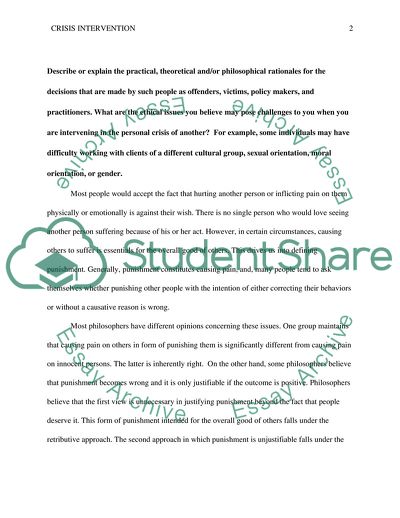Cite this document
(Crisis Intervention: Rationales in Solving Societal Crisis Assignment, n.d.)
Crisis Intervention: Rationales in Solving Societal Crisis Assignment. Retrieved from https://studentshare.org/psychology/1800523-crisis-intervention
Crisis Intervention: Rationales in Solving Societal Crisis Assignment. Retrieved from https://studentshare.org/psychology/1800523-crisis-intervention
(Crisis Intervention: Rationales in Solving Societal Crisis Assignment)
Crisis Intervention: Rationales in Solving Societal Crisis Assignment. https://studentshare.org/psychology/1800523-crisis-intervention.
Crisis Intervention: Rationales in Solving Societal Crisis Assignment. https://studentshare.org/psychology/1800523-crisis-intervention.
“Crisis Intervention: Rationales in Solving Societal Crisis Assignment”. https://studentshare.org/psychology/1800523-crisis-intervention.


